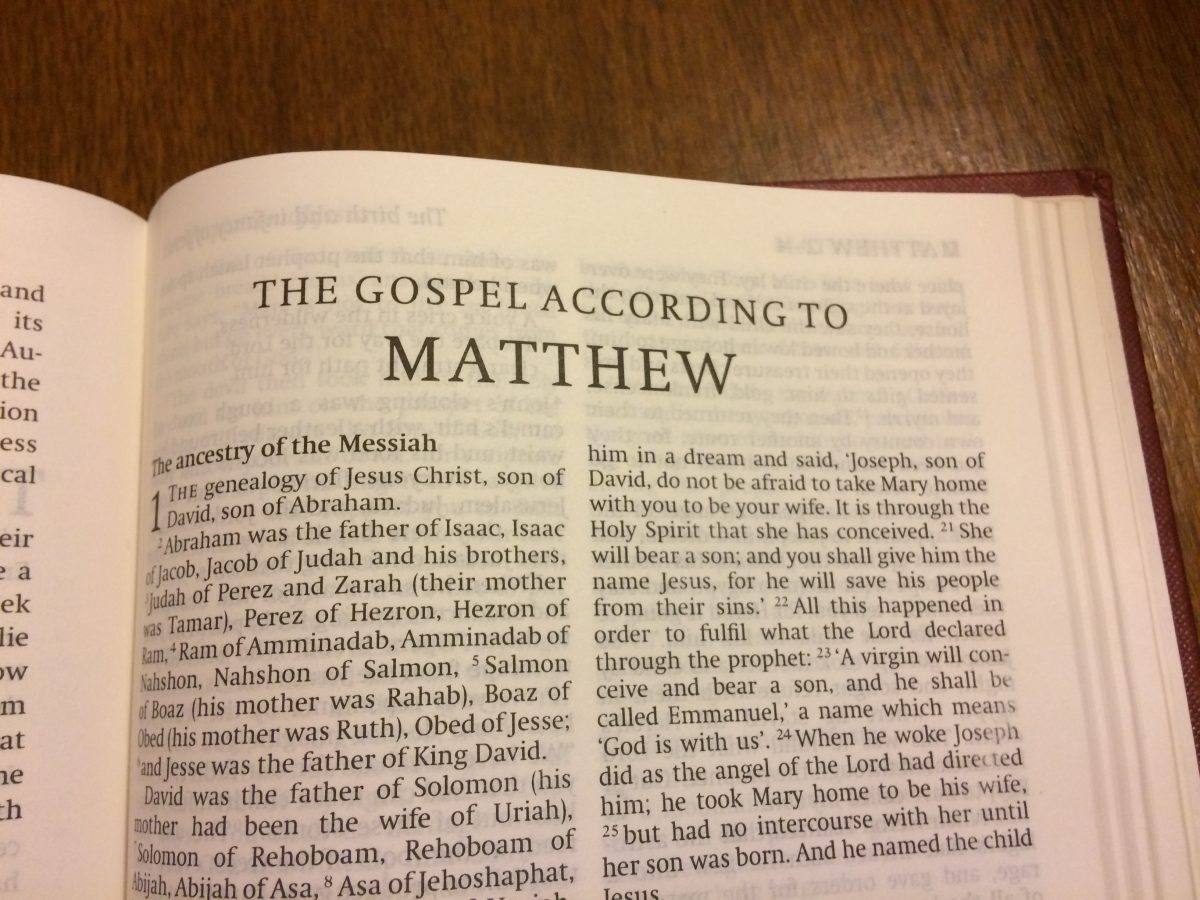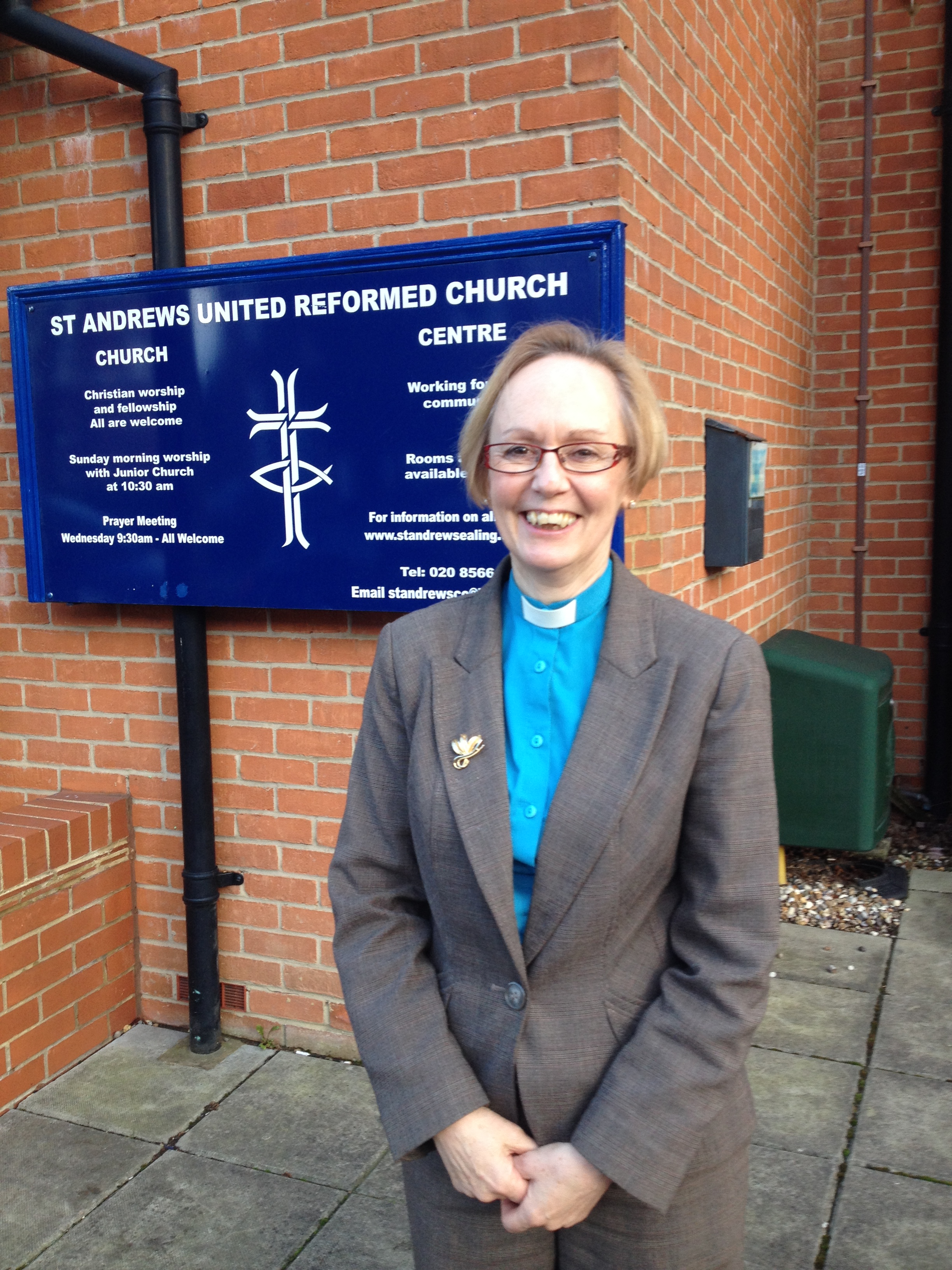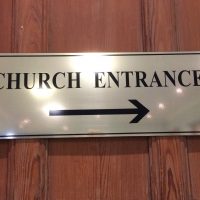Sermon
Bible reading: Matt 23:1-12
A certain town had a taxi-driver, who was regarded by all as a menace on the road. He drove too fast, and without any care – but since his was the only taxi, everybody used his car. One day, though, his luck ran out. Driving home from his last passenger, he took a corner too tightly, crashed the car and was killed instantly. It so happened that the local church minister, who had been ill, died on the same day, and found himself in the queue for the pearly gates. The minister was astonished to see the taxi driver in the queue ahead of him – and even more astonished when St Peter opened the gates and waved the driver straight through.
‘Well’, thought the minister, ‘I do preach forgiveness’. And he strode confidently forward towards the gates. But St Peter stopped him: ‘I need to ask you a few more questions’.
‘What!?’ said the minister. ‘You want to ask me questions? But you let that dreadful taxi driver straight through!’
‘Ah’, said St Peter. ‘The thing is… when you pray in church, you do say a lot, mostly the same, and I’m afraid people tend to drift off… whereas when they were in the back of that man’s taxi, boy did they pray!
Life in God doesn’t always look the way we think it will.
Let’s go back to Psalm 107.
There’s a structure to this psalm. If we’d read the whole psalm, you would see it – it’s not so easy to spot with just selected verses. It’s written in sections, a bit like the verses of a hymn. And indeed, it was a liturgical psalm – written and used as a liturgy of thanksgiving at one of Israel’s major festivals.
Each of the four main sections follows the same pattern. They begin with a description of people in difficulty – we read about people wandering in desert wastes; other sections speak of people as prisoners in misery and in irons; of people who were sick and enduring affliction; and the last section speaks of those who go down to the sea in ship and do business on the mighty waters, and then find themselves at the mercy of storms. In some cases, the misfortune is seen as the fault of those who are suffering; in others, as in today’s reading, the cause is not mentioned and it’s just the way things happened.
Regardless of the origin of their problems, in each section we are told the ‘people cried out to the Lord in their trouble’ – and ‘he saved them from their distress’. And then, in each section, the same few words: ‘let them thank the Lord for his steadfast love, for his wonderful works to humankind’. The sections end with a little description of the way God dealt with the problem.
At first glance, this looks as if it is saying, life had gone wrong, the people cried for help, God showed his love by saving them and therefore they should give thanks. That would be perfectly logical. If you get stranded with a flat tyre and a passing motorist stops to help you change the wheel, then of course you would be grateful.
That’s not what this psalm is saying about God.
The steadfast love of God does not kick in as God is coming to the rescue. It doesn’t kick in as the people cry to God for help. The steadfast love of God, the ‘hesed’ of God, is there all the time – it’s steadfast, it doesn’t change. The people of God are still the people of God, still loved by God, even when things seem to be going horribly wrong. It is their love of God, and their trust in God’ love for them, that enables them to cry out to God for help; it is their trust in God that enables them, once they have admitted their need, to accept the help that God is bringing.
In the verses we read, the psalm speaks of people ‘wandering in desert wastes, finding no way to an inhabited town’. A town, that is, where they could find shelter and hospitality. This might be a reference to the people after the Exodus, being led by Moses through the desert of Sinai. It might equally be about the people in exile in Babylon, who had food and shelter but could be seen to be in a spiritual desert, surrounded by strangers who didn’t share or understand their faith. Or we could apply it more generally, and see this as including any people who find that the normal structures of their lives are no longer meeting their needs.
In this pandemic, this desert wandering could be the people whose jobs or hours have cut, who can’t imagine how they will manage; it could be the care home resident who doesn’t understand why their family no longer visit; it could be a child who goes hungry when there are no school meals; it could be hospital staff, barely recovered from the first wave and facing a long and difficult winter. It could be any of us who feel that every day is a bit of a slog.
These people are described as hungry and thirsty, and ‘their soul fainted within them’. In biblical times there was no real concept of mental health issues, but ‘your soul fainting within you’ sounds to me like a poetic description of depression, and the way it really drains all your energy. So they cried out to God in their trouble, and he delivered them from their distress. Which sounds like instant rescue, but wait – it goes on: he led them by a straight way, until they reached an inhabited town.
If you think back to the Exodus from Egypt, it took ages. We don’t know how long the Israelites were crying out for help before God sent Moses; it took a while for Moses to persuade Pharaoh; and once they had got out of Egypt, it took them 40 years before they finished wandering around the wilderness and got to a place they could settle in safety. This is not by any stretch of the imagination a quick fix. But here’s the thing – God was with them the whole way through. God was with Moses long before he called him from the burning bush – God was with Moses when his mother hid him as a baby in the bulrushes and he was found by Pharaoh’s daughter. God was with them before Moses was born, working in the cunning Hebrew midwives who delivered baby Hebrew boys against Pharaoh’s orders.
God is there the whole way through: preparing the groundwork, laying the plans, calling the leaders, guiding the people, until with God’s help they find their way forwards. God’s wonderful work is for the most part plotted and carried out through human pathways. Let them thank the Lord for his steadfast love, for his wonderful works to humankind.
Being saints, being set apart, being holy, means being alert to the steadfast love of God, which is always there. It means we have the freedom to cry out to a loving God who is always listening, even if not always giving us the answer we want. It means being attuned to that loving God so that we are ready when we are called on to play our part, whether it’s a heroic part like Moses the leader, or whether it’s the more subtle part like the midwives who were just doing their regular job but for God’s purposes. And it means, being set apart as saints, that we have the trust and confidence and courage to bring hope to others.
This is where the Pharisees went wrong, as we heard in our reading from Matthew. They knew everything there was to know about the scriptures, about the law of Moses; they followed that law scrupulously. They were set apart by their knowledge and their piety. But they weren’t thinking about the effect they were having on ordinary people. They didn’t consider that the standards they set were nigh on impossible to follow if you were also working flat out and raising a family. They didn’t see that they were setting people up to fail. They were not bringing life; they were bringing a burden.
The Pharisees are always a useful little mirror for church leaders, when we start to get above ourselves. As is the joke about the minister and the taxi driver. I hope I never become a burden on you. We are all saints together here, and we can all learn from one another, and encourage one another. We can bring life to each other, and support each other in bringing life to those around us. So whatever the future holds – and nothing seems very certain at the moment – we can be confident in the love of God.
Let us thank the Lord for his steadfast love, for his wonderful works for humankind.
Amen.







